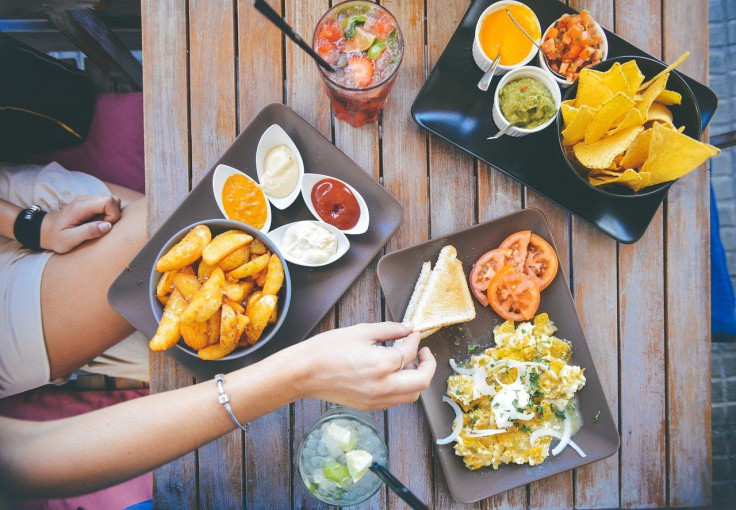5 Food Safety Tips For A Healthy Super Bowl Sunday
KEY POINTS
- Super Bowl also means enjoying good food while watching the game
- Apart from making them delicious, it's important to also make foods safe
- Below are some food safety tips to keep your Super Bowl Sunday healthy and safe
Super Bowl is one of those events that bring people together. Whether they're together at the stadium to watch it live, at various venues to watch it with friends or hosting a viewing party at home, the Super Bowl always gives people a reason to gather together and, even enjoy their favorite foods while watching the event.
Although Sunday's "socially-distanced" Super bowl will likely be different from what we are used to witnessing, and even viewing parties have to be adjusted to stay safe from COVID-19, the one thing that hasn't changed is the need to practice food safety so that people can enjoy the good food and the show without worrying about the chances of getting any food-borne illness.
Here are some basic food safety tips to remember while enjoying a fun and healthy Super Bowl LV, courtesy the U.S. Department of Agriculture Food Safety and Inspection Service (FSIS), the Centers for Disease Control and Prevention (CDC) and the University of Florida Institute of Food and Agricultural Sciences (IFAS).
Keep things clean
This is something that we've all been hearing a lot of in the past year, but washing your hands is key to staying healthy, especially when it comes to preparing food. This means washing your hands before, during and after preparing food. Of course, this simple practice should also follow other tasks such as when you touch your pet or go to the restroom.
Apart from washing hands, it's also important to wash fruits and vegetables under running water even if you're not planning on eating the peels and to clean surfaces and utensils used while preparing food with soapy water.
Although it sounds simple, these simple acts are actually very important to keep yourself and your family from germs.
Separate the ingredients
If there is one thing that doesn't need to be washed, it is raw chicken. According to IFAS, washing raw chicken could instead cause microbes to spread.
You should also remember to keep the ingredients separated, particularly fresh meat from other ready-to-eat items such as fruits and vegetables. This is because keeping them together increases the risk of cross-contamination and food poisoning. This also means using separate chopping boards, bowls and utensils to prepare them.
Cook well
Cooking well doesn't just mean making your food delicious, but making them safe too. Cook your food items at the right temperature to kill any potential germs and bacteria. For instance, the CDC noted that chicken should have an internal temperature of 165 degrees Fahrenheit, while egg and beef should be at least 160 degrees Fahrenheit.
Using a simple food thermometer could help you ensure the safety of your meals. The FSIS provides a list of the minimum internal temperatures at which various foods should be cooked to be safe.

Double dipping is a "no-no"
If you're not aware, double dipping is when someone dips a food item, for instance, a chip or a stick of celery, into a shared dipping sauce more than once. This habit actually has the potential to spread germs.
"This is a potential mouth-to-dip transfer of germs, we want to avoid," IFAS said.
Although this might not be easy to monitor, the CDC recommends giving everyone their own small plate to discourage them from eating directly from the bowl.
Say no to room temperature
It's easy to forget about the food once you're already absorbed in the Super Bowl, but it's important to keep hot food hot and cold food cold, IFAS noted. You can opt to use a chafing dish to keep food hot or bowls of ice to keep them cold, the CDC suggests.
Food should not be kept at room temperature for more than two hours. If you must, then you can set a timer for when you need to reheat or refrigerate food.
"Throw away any perishable foods that have been out at room temperature for 2 hours or more," the CDC said.
And once the event is over, remember to store the leftovers in the fridge or freezer immediately to prevent them from going bad. When you reheat them, remember to do it at the proper temperature.
© Copyright IBTimes 2025. All rights reserved.






















